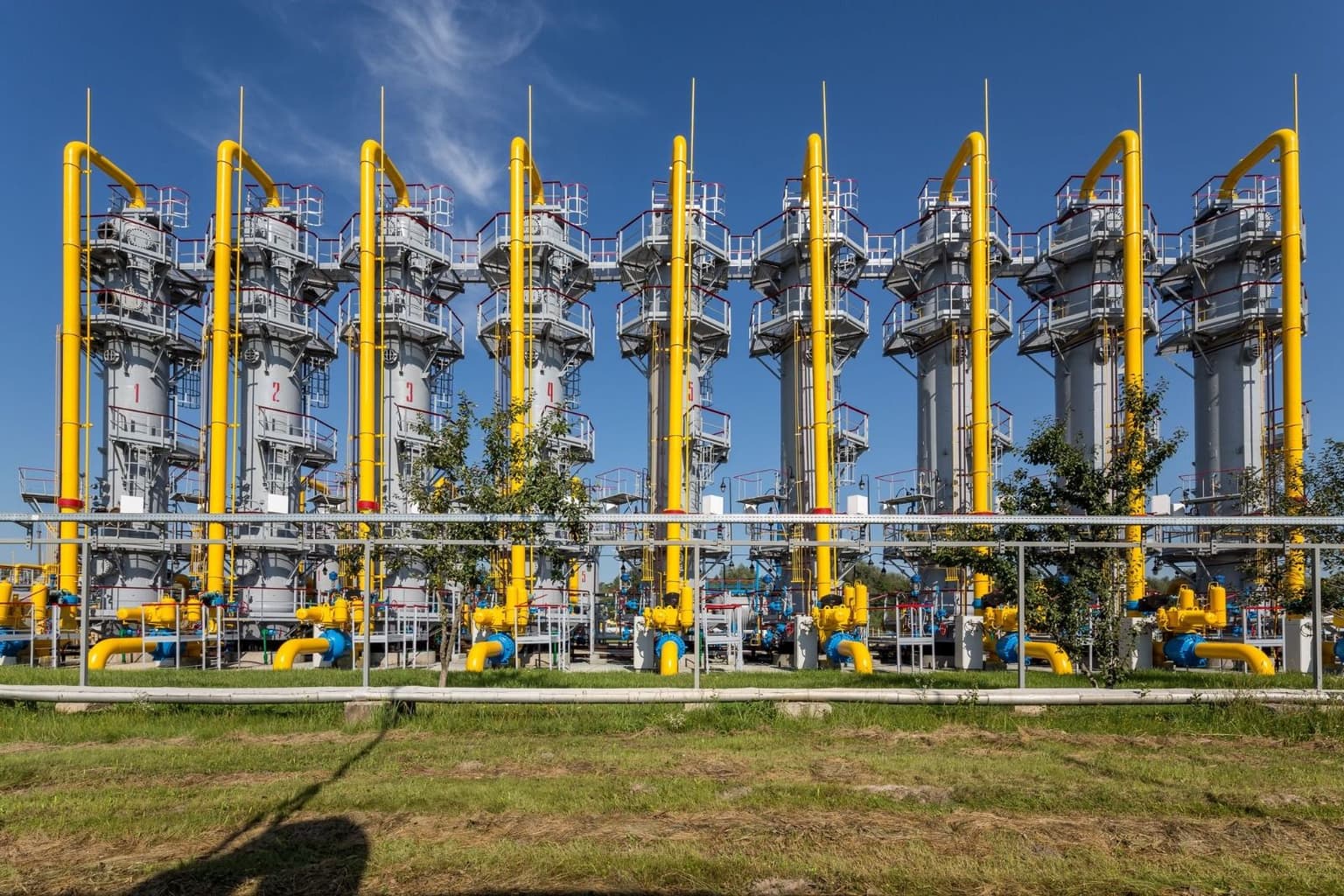Ukrainian State-Owned Enterprises Weekly – Issue 89

Editor’s Note: This is issue 89 (special edition) of Ukrainian State-Owned Enterprises Weekly. The Kyiv Independent is reposting it with permission.
Ukrainian SOE Weekly is an independent weekly digest based on a compilation of the most important news related to state-owned enterprises (SOEs) and state-owned banks in Ukraine. This publication was produced with the financial support of the European Union within the project “Supporting Ukraine in rebuilding and recovery” implemented by the KSE Institute. The contents of this publication are the sole responsibility of the editorial team of the Ukrainian SOE Weekly and do not necessarily reflect the views of the European Union.
Corporate governance reform of GTSOU
An improved draft law on corporate governance of the GTSOU registered in parliament to help Ukraine meet its commitments to the IMF and international obligations. On May 24, draft law No. 9311-1, was registered in parliament. The draft law is an alternative proposal to the Cabinet of Ministers’ draft law No. 9311 which was registered on May 19.
Both draft laws set a framework for optimizing the ownership structure of the Gas Transmission System Operator of Ukraine (GTSOU), which is needed to fulfill Ukraine’s commitments under the recently approved IMF programme, including the IMF’s structural benchmark on the corporate governance reform of GTSOU.
Draft Law 9311-1 was proposed by two lawmakers of the Voice faction, Maksym Khlapuk and Yaroslav Zheleznyak, and other MPs. The law was drafted by two members of the SOE Weekly team, Oleksandr Lysenko and Andriy Boytsun.
Note that Boytsun and Lysenko were of the opinion that no merger of the MGU and GTSOU – hence, no law on such merger – was needed in the first place, and all commitments to the IMF, the EU, and Energy Community Secretariat (EnCS) could be met by simply transferring the GTSOU from the MGU to the Ministry of Energy and installing appropriate corporate governance arrangements directly at the GTSOU.
If the government feared any hypothesized tax consequences from the ownership transfer, delays with the obtainment of permits from regulators, and the like, then it should have proposed a draft law that deals with these issues rather than develop a new legal procedure for an unnatural takeover of a joint-stock company (such as the MGU) by a limited liability company (such as the GTSOU).
However, within the constraints set by the governmental draft law (No. 9311) that was already registered in parliament on May 19, the proposed alternative draft law (No. 9311-1) is the best available option to make sure that the current deficiencies in the GTSOU’s corporate governance are addressed in future.
The original governmental draft law (No. 9311) proposed the following steps to reform the corporate governance of the GTSOU:
- Merge the MGU with the GTSOU, resulting in the liquidation of the MGU. This implies transferring the shareholder rights over the GTSOU from the MGU directly to the Ministry of Energy and adopting a new charter of the GTSOU that introduces a supervisory board as a governing body of the GTSOU.
- After the merger is completed, the GTSOU’s new supervisory board should be appointed by Oct. 31. In the interim, the current members of the MGU’s supervisory board will serve as the GTSOU’s supervisory board.
However, the language used in the governmental draft creates risks that may lead to a breach of Ukraine’s commitments under the IMF programme.
The alternative draft law (No. 9311-1) improves the governmental proposal in the following ways:
- It sets a firm deadline for the appointment of the new supervisory board of the GTSOU (Oct. 31, as required by the IMF programme), as well as defines the consequences for failing to do so.
In case of such failure, the powers of the MGU’s current supervisory board members, who will act as the GTSOU’s interim supervisory board, will expire on Oct. 31. They will be transferred to the Ministry of Energy as the general meeting of the GTSOU, except the powers to appoint or dismiss the CEO and executive board members of the GTSOU.
Note that the governmental draft law also sets a deadline of Oct. 31. However, that deadline is for selecting the GTSOU’s new supervisory board. That is, there is no explicit requirement that the board is ultimately appointed, which leaves room for misinterpretation or manipulation.
Moreover, the governmental draft does not envisage any consequences or accountability for not meeting the deadline or not appointing a new supervisory board. As a result, the MGU’s supervisory board members might continue to serve as the GTSOU’s supervisory board for an indefinite time.
- The alternative draft law (No. 9311-1) requires that GTSOU’s new supervisory board is formed according to the requirements of the Law on Management of State Property Objects. This ensures that independent members should constitute a majority on the new board. The draft law also requires that the selection of the GTSOU’s new board follows the competitive selection procedure established by law for systemically important SOEs.
In contrast, the governmental draft law (No. 9311) only states that the GTSOU’s supervisory board should be elected via a competitive selection procedure set by legislation, without specifying what that legislation is. This leaves room for establishing new legislation specifically for this purpose rather than using the common procedure for systemically important SOEs.
- Draft law No. 9311-1 establishes that the type of the GTSOU’s executive body – such as a CEO or executive board – should be set by the company’s charter (rather than by law). This is a common shareholder right in the normal corporate practice of both state-owned and private companies. The draft law also states explicitly that – if the GTSOU’s charter envisages a collegiate executive body – then the GTSOU’s supervisory board should be exclusively responsible for selecting and appointing executive board members.
In contrast, the governmental draft law (No. 9311) proposes that the GSTOU should have an executive board as a result of the merger. Although the executive board is a common form of the management body at companies such as the GTSOU, setting this in law would effectively represent a limitation of shareholder rights.
In addition, this language can be interpreted in a manner that allows the GTSOU’s general meeting (de facto, the Ministry of Energy) or its interim board (de facto, the MGU’s current supervisory board) to appoint the GTSOU’s executive board members as part of the merger. If such actions should take place, they might be viewed as political meddling with the GTSOU’s operations and an infringement upon its independence.
- Draft law No. 9311-1 proposes that the GTSOU’s new charter should be approved by the Ministry of Energy after being agreed with the Energy Community Secretariat (which is also required by the IMF programme’s structural benchmark).
In contrast, the governmental draft law grants the MGU’s supervisory board an exclusive right to propose amendments to the GTSOU’s charter. In this scenario, the rights of the Ministry of Energy would be limited to either accepting or rejecting such amendments. This creates a risk of impeding the approval of the necessary amendments to the GTSOU’s charter, which would lead to a failure to meet the IMF programme’s deadlines.
Nevertheless, note that even the improved draft law 9311-1 should be adopted and enter into effect no later than the end of June if the IMF deadlines are to be met.
As we reported in SOE Weekly (Issue 88), the Cabinet of Ministers said in its release on May 12 that it approved a draft law aimed at launching the corporate reform of the GTSOU. However, that draft law was neither published nor registered in the Verkhovna Rada.
Instead, a revised version of that draft law was approved by the Cabinet in its meeting on May 19, later registered as draft law No. 9311 in parliament. These drafts were criticized for not meeting the IMF commitments.
In SOE Weekly (Issue 82), we reported that the IMF’s recently approved $15.6 billion EFF programme for Ukraine set a structural benchmark for the GTSOU, as well as a number of other requirements. Specifically, the authorities have committed to implement the following steps:
- Transfer all shares of the GTSOU from the MGU to the Ministry of Energy and adopt the GTSOU’s new charter which was developed and agreed upon with the Energy Community Secretariat (EnCS) by the end of July 2023 (structural benchmark);
- Select and appoint a supervisory board for the GTSOU by the end of October 2023;
- Subsequently, appoint a new CEO and eventually liquidate the MGU.
In Issue 71, we also reported that Ukrainian media outlet European Pravda revealed the conditions that Ukraine must meet to receive the EU’s 18-billion-euro macro-financial assistance (MFA) package. One of these conditions is to launch the corporate restructuring of the GTSOU by the end of June 2023.
In Issue 67, we reported that on Oct. 4, 2022, the EnCS wrote a letter to Prime Minister Denys Shmyhal and Minister of Energy Herman Halushchenko, urging the government to immediately implement the GTSOU’s corporate governance action plan:
- transfer the ownership of the GTSOU from the MGU to the Ministry of Energy;
- adopt a new charter for the GTSOU, establishing an independent supervisory board;
- run a competitive selection for the GTSOU supervisory board members;
- have an executive board elected and appointed by the GTSOU’s new supervisory board.













